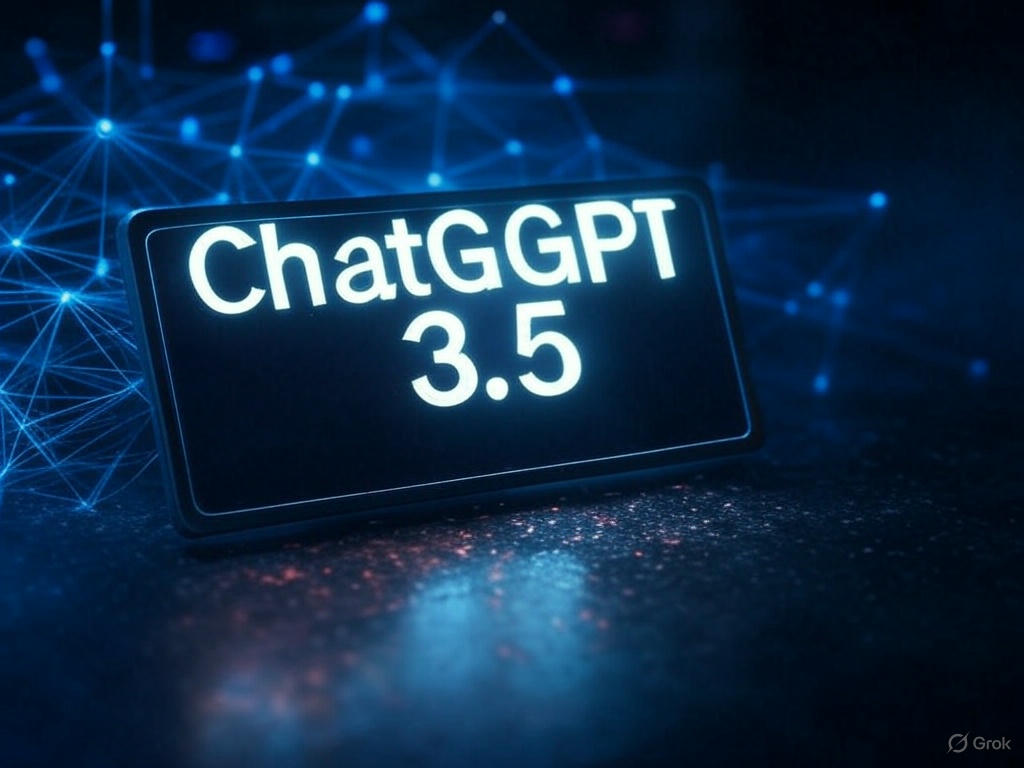ChatGPT 3.5
With the rapid advancements in artificial intelligence (AI), natural language processing (NLP) models like OpenAI's ChatGPT have become increasingly sophisticated. ChatGPT 3.5, an iteration in this series, is a powerful AI model designed to generate human-like text based on the input it receives. In this blog, we will explore ChatGPT 3.5, its features, applications, and future prospects.
Techno solution

Table of Contents
- Introduction
- What is ChatGPT 3.5?
- Key Features
- How ChatGPT 3.5 Works
- Applications and Use Cases
- Advantages and Limitations
- Future Prospects
- Conclusion
- References
Introduction
With the rapid advancements in artificial intelligence (AI), natural language processing (NLP) models like OpenAI's ChatGPT have become increasingly sophisticated. ChatGPT 3.5, an iteration in this series, is a powerful AI model designed to generate human-like text based on the input it receives. In this blog, we will explore ChatGPT 3.5, its features, applications, and future prospects.
What is ChatGPT 3.5?
ChatGPT 3.5 is a version of OpenAI's generative pre-trained transformer (GPT) model. It builds on the success of its predecessors, leveraging a large dataset to produce coherent and contextually relevant text. This model is part of OpenAI's broader mission to develop AI that can understand and generate natural language with high accuracy.
Key Features
ChatGPT 3.5 comes with several notable features:
- Improved Language Understanding: Enhanced ability to understand and generate text in a more human-like manner.
- Contextual Awareness: Better retention of context over longer conversations, making interactions more coherent.
- Versatility: Capable of handling a wide range of topics and tasks, from answering questions to creative writing.
- User-Friendly Interface: Accessible through various platforms and applications, making it easy for developers to integrate into their products.
How ChatGPT 3.5 Works
The core of ChatGPT 3.5 lies in its transformer architecture. It uses a large neural network trained on diverse internet text. The model predicts the next word in a sentence based on the preceding words, allowing it to generate fluid and contextually appropriate text. The training process involves fine-tuning on specific tasks and datasets to enhance performance.
Applications and Use Cases
ChatGPT 3.5 has a broad range of applications, including:
- Customer Support: Providing automated responses to customer queries, reducing the need for human intervention.
- Content Creation: Assisting in writing articles, blogs, and creative content.
- Educational Tools: Helping students with learning by answering questions and providing explanations.
- Virtual Assistants: Enhancing the capabilities of virtual assistants like chatbots.
- Entertainment: Creating engaging and interactive experiences in gaming and social media.
Advantages and Limitations
Advantages
- Efficiency: Can handle multiple tasks simultaneously, improving productivity.
- Consistency: Provides consistent and reliable responses.
- Scalability: Easily scalable for various applications and industries.
Limitations
- Bias: Potential for generating biased or inappropriate content based on the training data.
- Dependency on Data Quality: Performance heavily relies on the quality and diversity of the training data.
- Lack of Understanding: Despite improvements, it still lacks true understanding and may produce incorrect or nonsensical answers.
Future Prospects
The future of ChatGPT and similar models is promising. As AI technology continues to evolve, we can expect further improvements in language understanding and generation. Future versions may address current limitations, offering even more sophisticated and reliable AI interactions.
Conclusion
ChatGPT 3.5 represents a significant step forward in the development of AI-driven language models. Its ability to generate human-like text has numerous applications across various fields. While there are still challenges to overcome, the potential for future advancements is immense, paving the way for more integrated and intelligent AI solutions.
References
- OpenAI. (n.d.). Introducing ChatGPT
- OpenAI. (2023). GPT-3.5 Technical Report
- Smith, J. (2023). Understanding Transformer Models